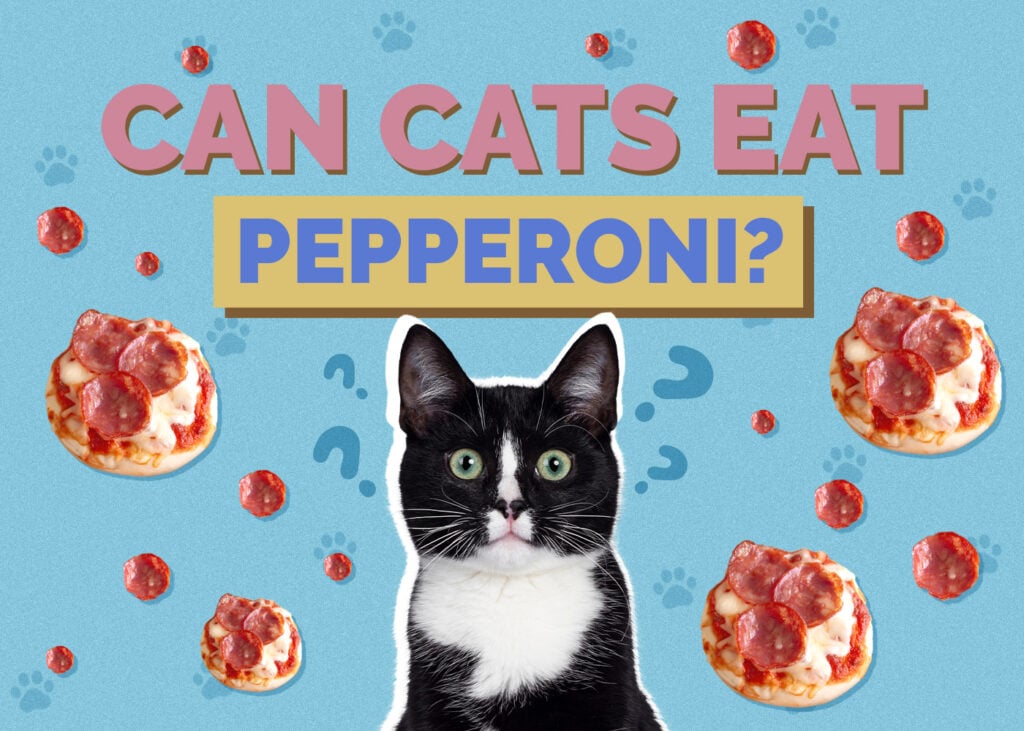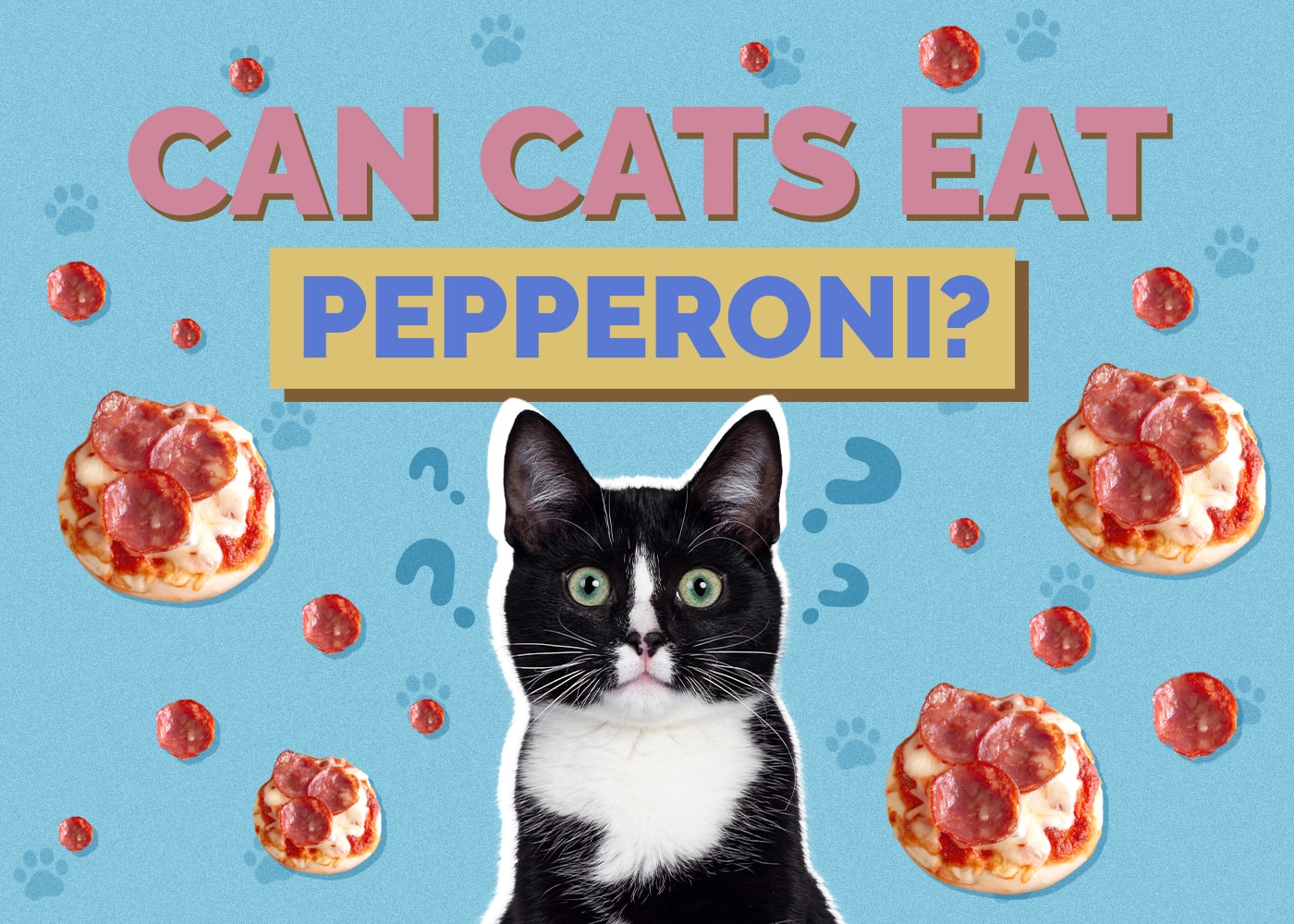Cats should not eat pepperoni as it contains spices and high levels of salt and fat that are harmful to them. Pepperoni can lead to digestive issues and serious health problems in cats.
Cats often show interest in whatever their human companions are eating, and pepperoni might be no exception. However, as obligate carnivores, their diet must be carefully managed. While the basic component of pepperoni, meat, is suitable for cats in moderation, the additional ingredients are problematic.
Pepperoni, a highly processed form of meat, is packed with preservatives like sodium nitrate, seasonings such as garlic and onion powder, and an excess of salt, all of which are toxic to felines. These ingredients can trigger gastrointestinal upset, and over time, excessive sodium can lead to more severe health issues, including salt poisoning. Responsible pet owners need to understand the importance of maintaining a safe and healthy diet for their animals, avoiding the temptation to share processed human foods that can potentially jeopardize their health.
Cats And Human Foods: A Safety Primer
When it comes to pets, cats are known for their picky eating habits. Yet, many owners wonder about sharing human foods with their feline friends. Understanding what’s safe and what’s harmful is crucial for your cat’s health. Let’s explore common human foods and the risks associated with offering them to your cat.
Assessing Common Table Foods
Cats require a balanced diet tailored to their nutritional needs. While certain human foods might seem harmless, they can lack essential nutrients for cats or even be toxic. It’s essential to evaluate each food item before considering it as a treat for your pet cat.
| Food Item | Safe for Cats | Notes |
|---|---|---|
| Cooked Fish | Yes | Ensure it’s boneless and served in moderation. |
| Dairy Products | Occasionally | Some cats are lactose intolerant. |
| Grains | Yes | Small amounts of cooked grains like rice are okay. |
| Vegetables | Yes | Steamed veggies like carrots can be healthy. |
| Meats | Yes | Lean, cooked meat is safe in moderation. |
The Risks Of Feeding Cats Human Snacks
- Obesity: Human snacks can lead to weight gain in cats.
- Digestive Issues: Rich foods cause upset stomachs or worse.
- Toxic Ingredients: Some human food contains substances toxic to cats.
- Nutritional Deficiency: Human food lacks vital nutrients for cats.
Be mindful of treats like pepperoni, which poses health risks due to high fat and salt content, spices, garlic, and onion powder. These ingredients can be harmful to your cat. To ensure your cat’s health, stick to treats designed for them and keep human snacks out of reach.

Credit: www.hepper.com
Pepperoni Ingredients: A Closer Look
When it comes to what we feed our pets, we often think about sharing our favorite snacks. Pepperoni might be tasty for us, but is it safe for cats? Let’s delve into the ingredients that make up this popular pizza topping and see if it’s feline-friendly.
What Goes Into Pepperoni?What Goes Into Pepperoni?
Pepperoni is a cured meat full of different ingredients. Some key components include:
- Pork: A primary ingredient that offers rich flavor.
- Beef: Often blended with pork for texture and taste.
- Salt: Used in large amounts for preservation.
- Spices: Pepper, paprika, and garlic powder add zest.
- Preservatives: Such as sodium nitrate, to maintain freshness.
- Smoking agents: Give pepperoni its smoky aroma.
Understanding Meat Cures And Feline Health
Cured meats like pepperoni contain substances that are not ideal for cats. Consider these factors:
| Ingredient | Effect on Cats |
|---|---|
| Salt | Can lead to dehydration and salt poisoning. |
| Onion & Garlic Powder | Toxic and can cause anemia. |
| Preservatives (Nitrates) | May cause digestive and health issues. |
| Fats | High fats can lead to pancreatitis. |
Diving into the spices and preservatives reveals a list that is not cat-friendly. High salt and seasonings intended for human palates can be harmful to our feline companions.
Dangers Of Pepperoni To Feline Health
The question of whether feline friends can snack on pepperoni is a spicy topic for pet lovers. While cats may show an interest in cured meats such as pepperoni, it’s important to understand the potential health hazards. Pepperoni is not a safe or healthy treat for your cat, and here’s why:
Spices And Cats: A Toxic Combination
Pepperoni is loaded with spices that are harmful to cats. Garlic and onion, common in pepperoni seasoning, can lead to serious health issues. Let’s look at why these spices are toxic:
- Garlic: Even in small amounts, it can cause anemia in cats.
- Onion: This spice has thiosulfates which can damage your cat’s red blood cells.
- Chili: Can lead to digestive upset and irritation.
Salt And Fat Content: The Hidden Hazards
Pepperoni’s dangers are not just spicy. Salt and fat content pose a serious risk to cats. Let’s break down these hidden hazards:
| Hazard | Effect on Feline Health |
|---|---|
| High Salt | Can lead to sodium ion poisoning and dehydration. |
| Excess Fat | Risks obesity and pancreatitis in cats. |
Offering your cat a slice of pepperoni may seem harmless, but even a small amount can overwhelm their system with salt and fat.

Credit: www.hepper.com
Alternatives To Pepperoni For Your Cat
Feeding your feline friend can sometimes be a tricky business, especially when they eye your food with longing. While pepperoni might seem like a tasty treat for your cat, it’s not the healthiest choice. But don’t worry! Plenty of cat-friendly alternatives will make your kitty purr with delight without risking their health. Let’s dive into some healthy and safe options to keep your cat content.
Healthy Treat Options
Cats require lean proteins to thrive. When looking for treats, it’s best to seek out options that mirror what they naturally eat. Here’s a list of healthy treats that your cat can enjoy:
- Plain cooked chicken – without any seasoning or sauce.
- Salmon or tuna – in small amounts, making sure there’s no added salt or flavorings.
- Scrambled eggs – a good source of protein, ensure they’re cooked without oil or butter.
- Pumpkin – can aid in digestion, serve it plain and pureed.
- Catnip or silver vine – for a fun, intoxicating treat.
Always consult your vet before introducing new foods. Ensure all treats are served in moderation.
Diy Cat-friendly Snack Recipes
Making snacks at home can be a fun way to spoil your cat. Try these simple recipes for a homemade delight:
Simple Baked Chicken Treats
- Preheat oven to 350°F (175°C).
- Cut plain chicken into tiny pieces.
- Place on a baking sheet and cook for 15 minutes.
- Let them cool before giving to your cat.
Tuna Balls
- Mix one can of tuna in its own juice (drained) with an egg.
- Roll into small balls and place on a greased baking sheet.
- Bake at 350°F (175°C) for 10 minutes.
- Wait until cool and treat your cat!
Kitty Pumpkin Cookies
- Mix one cup of pureed pumpkin with a tablespoon of coconut oil and two cups of oats.
- Form into small cookies and bake at 350°F (175°C) for 30 minutes.
- Cool completely before giving to your cat.
Remember, homemade treats should complement your cat’s diet, not replace it.
Implementing A Balanced Feline Diet
When cat owners ponder over what treats to share with their feline friends, questions like “Can cats eat pepperoni?” often come up. While a sliver of pepperoni might not seem harmful, it’s crucial to focus on a tailored nutrition plan for cats. It ensures they lead healthy, happy lives. A balanced diet is key, and that means understanding the essentials of proper cat nutrition and maintaining dietary restrictions for our feline companions.
Essentials Of Proper Cat Nutrition
Cats need a mix of nutrients to thrive, including protein, fats, vitamins, and minerals. Unlike humans, cats are obligate carnivores, meaning they rely heavily on meat. Let’s break down the essential components:
- High-quality protein – This is a must for muscle repair and growth.
- Fats – They provide energy and help absorb vitamins.
- Vitamins and minerals – These support immune function and overall health.
- Water – Dehydration prevention is vital.
Maintaining Dietary Restrictions For Cats
Why should cats avoid certain foods like pepperoni? Simply put, spices and additives in pepperoni can lead to health issues. To maintain a safe diet:
- Avoid foods high in salt and fat.
- Stick to cat-specific treats.
- Limit human food offerings.
Careful monitoring of your cat’s diet prevents health complications. Occasional treats are fine, but always choose cat-safe options. When in doubt, consult a vet.

Credit: www.amazon.com
When Your Cat Ingests Pepperoni: Next Steps
Cats and pepperoni can be a troublesome duo. If your feline friend sneaks a slice, stay calm but vigilant. Pepperoni is not a healthy snack for your pet. It’s salty and spicy, which can lead to problems. Let’s dig into the immediate steps to take.
Identifying Signs Of Distress
Once your cat has had pepperoni, monitor their behavior closely. Look out for signs that something’s amiss. Common symptoms include:
- Upset stomach: Vomiting or diarrhea
- Thirst increases: Excessive drinking due to salt
- Lethargy: Less playful, more naps
- Behavior changes: Hiding or aggression
Keep a close eye on your cat, especially in the first 24 hours after ingestion.
Seeking Veterinary Assistance
Don’t hesitate to contact your vet if your cat shows any troublesome signs. Explain what and how much your cat ate. Here are some points to note before you call:
| Symptom | Action |
|---|---|
| Continuous vomiting | Contact vet immediately |
| Diarrhea for over 24 hours | Seek professional advice |
| Signs of pain | Professional evaluation needed |
| Severe lethargy | Emergency care might be required |
Your vet may advise you to monitor at home or bring your cat in for a check-up. It’s always best to err on the side of caution.
Frequently Asked Questions On Can Cats Eat Pepperoni
Is Pepperoni Safe For Cats To Eat?
Pepperoni is not recommended for cats due to its high salt and fat content, which can lead to digestive issues and obesity. Moreover, additives like garlic and onion powder are toxic to cats and commonly found in pepperoni.
Can Cats Have An Allergic Reaction To Pepperoni?
Cats can have allergic reactions to processed meats like pepperoni. Signs include itching, swelling, or gastrointestinal upset. If your cat shows any symptoms after consuming pepperoni, consult a veterinarian immediately.
What Are Healthier Treat Alternatives For Cats?
Healthier treats for cats include small pieces of cooked chicken, turkey, or fish. Commercial cat treats that are low in calories and designed for feline health are also good options. Always choose treats formulated specifically for cats.
How Much Pepperoni Is Too Much For Cats?
Any amount of pepperoni can be harmful to cats. Its high sodium and spices can cause salt poisoning and stomach upset. Therefore, it is best to avoid giving pepperoni to cats entirely.
Conclusion
To wrap up, it’s clear that pepperoni isn’t the safest treat for your feline friends. Prioritizing cat health means choosing snacks designed for them, not processed human foods. Always consult your vet before changing their diet, and keep those pepperoni slices for pizza night instead!
